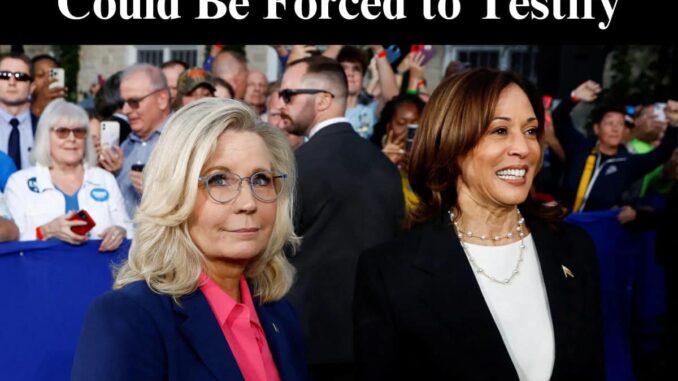
Former Wyoming Republican Rep. Liz Cheney, who turned against then-President Donald Trump during his first term and joined then-Vice President Kamala Harris on the campaign trail, could be forced to provide testimony under oath to a GOP-led House committee despite being given a pre-emptive pardon by former President Joe Biden.
Shortly after gaveling in their slim majority last month, at the direction of House Speaker Mike Johnson (R-La.), Republicans formed a new committee to examine the machinations and workings of the January 6 Committee featuring Cheney as co-chair and a panel comprised chiefly of Democrats hand-picked by then-Speaker Nancy Pelosi of California.
Reports over the past couple of years have exposed the committee as having been highly politicized rather than focused on what led to the riot at the U.S. Capitol on Jan. 6, 2021. The committee’s members, it turns out, concentrated on placing all of the blame on Trump while allegedly hiding evidence to the contrary.
During the committee’s proceedings, Cheney was vocal in her criticism of Trump. In a June 2022 address, she admonished her party members, stating, “There will come a day when Donald Trump is gone, but your dishonor will remain.”
In December 2024, the House Administration’s Subcommittee on Oversight, chaired by Rep. Barry Loudermilk (R-GA), released a report suggesting that Cheney be investigated for potential witness tampering. The report accused her of engaging in unethical communications with former White House aide Cassidy Hutchinson during the committee’s investigation.
On January 20, just before leaving office, Biden granted preemptive pardons to members of the January 6th Committee, including Cheney, to shield them from potential political retaliation by the incoming administration. Biden stated that these pardons should not be interpreted as an admission of wrongdoing, but rather as an acknowledgment of their service.
However, legal experts have highlighted an important consequence of presidential pardons: they strip the recipient of the ability to invoke the Fifth Amendment to avoid self-incrimination for pardoned offenses.
The Fifth Amendment ensures that individuals cannot be forced to testify against themselves in criminal cases. However, a long-standing legal precedent established in the 1896 Supreme Court case Brown v. Walker dictates that once a pardon is granted, the recipient can no longer claim the privilege, as the pardon effectively removes the criminal liability tied to the offense.
The Cowboy State Daily was the first to report on Cheney’s potential legal exposure and the impact the presidential pardon could have on her ability to avoid testifying. In Cheney’s case, this could mean that if she is subpoenaed by the new subcommittee, she may be legally required to testify about her role in the January 6 investigation.
Journalist Matt Taibbi said during an interview with former Fox News star Tucker Carlson on his podcast late last month that Biden’s preemptive pardons for Cheney, Dr. Anthony Fauci, and others could wind up backfiring under certain circumstances.
“The thing is, about these pardons, they’re a mistake. If you want to know what’s happening, they just made it a lot easier for us to find out,” Taibbi said regarding suspicions that Biden preemptively pardoned several individuals who likely were involved in some form of criminal activity.
Taibbi said that according to legal experts he has spoken with, the pardons would not allow them to plead the Fifth or cover them if they are caught lying under oath.
“Now, once the pardon’s delivered, the person can’t plead the Fifth. If they are brought before a grand jury, they can’t take the Fifth anymore, or if they’re brought before a congressional committee, they can’t evoke their right against self-incrimination, so they have to say something,” the journalist explained.
“And this is what’s so interesting because I’ve been talking to criminal defense attorneys, people who are former Senate investigators, some current Senate investigators, and they all kind of said the same thing,” he said. “It’s so illogical to give somebody a pardon if you’re trying to cover up things that the only reason you would really do it is if there are very serious crimes involved, right?”
Leave a Reply